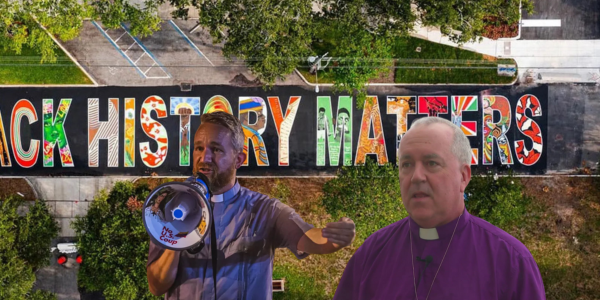
Black History Mural Standoff Ends with Charges Dropped in St. Pete
Share
A Symbolic Clash in South St. Petersburg
The legal fight against two local pastors who refused to let city crews erase the “Black History Matters” street mural has come to an end. Prosecutors confirmed that charges have been dropped, closing a case that had captured the city’s attention and sparked passionate debate about race, art, and public space in St. Petersburg.
The Battle Over a Street Mural

The mural outside the Woodson African American Museum of Florida was first painted in 2020, during a national surge of public art tied to racial justice protests. Earlier this year, state and federal transportation authorities directed municipalities to remove decorative crosswalk art, citing safety concerns. To many in the community, that reasoning felt hollow and served as little more than a pretext for wiping away a cultural marker that carried deep meaning.
Pastors on the Front Line
Reverends Andy Oliver and J.C. Pritchett stepped directly into the conflict, standing in the mural to stop its removal. Their defiance led to misdemeanor charges and fines, but Oliver quickly flipped the narrative. Instead of quietly paying the $62.50 citation, he encouraged supporters to donate that amount to the Woodson Museum. The community responded in force, turning a punitive act into an outpouring of support for a cultural institution.
More Than Paint on Pavement
The issue reaches far beyond painted pavement. To many residents, the controversy underscores a larger question: whose voices are amplified in public life, and whose histories are subject to erasure? Although the city was pressured by higher authorities, residents argue that government bureaucracy should not trump local expression and identity.
Aftermath and Lingering Tensions
Even with the charges dismissed, the matter feels far from resolved. The mural is gone, but the emotions it stirred remain raw. Many are asking why decisions about neighborhood identity are dictated from outside the community, and whether St. Pete leaders will take a firmer stand in the future to protect cultural expression that matters to its people.
